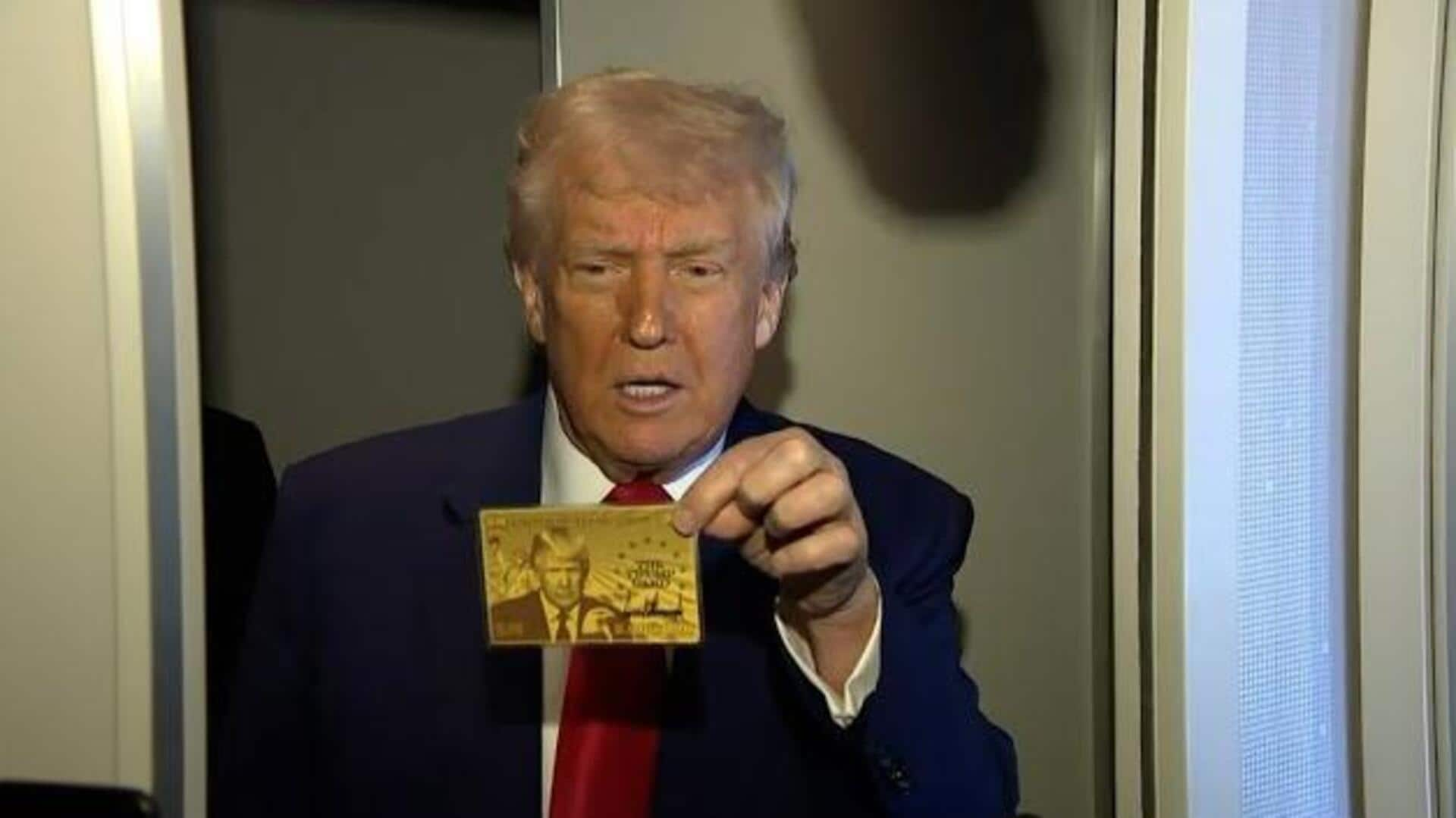
Trump's $5M 'gold card' visa failing to attract wealthy Chinese
What's the story
US President Donald Trump's proposed "gold card" visa for the ultra-wealthy appears to be failing to lure rich Chinese investors. While the $5 million price tag isn't a deal-breaker for prospective applicants, concerns over taxation policies, crime rates, and the program's legality are among the issues. The development comes as China witnesses a significant exodus of millionaires amid an economic slowdown.
Concerns raised
Wealthy Chinese investors express skepticism over Trump's gold card
Candice Meng, a Guangzhou-based real estate developer, expressed initial interest in Trump's gold card proposal. She said the investment requirement of at least $5 million for US residency was reasonable compared to similar programs in other countries like Singapore and New Zealand. However, despite her hundreds of millions of yuan in assets, Meng decided against US residency over high urban crime and the US-China trade war. America simply didn't feel like a good place to be right now, she said.
Lack of demand
Gold card scheme was to replace EB-5 visa program
Trump's gold card, which was proposed as a replacement for EB-5 program, appears to have failed in luring wealthy Chinese. Affluent Chinese make up around 70% of global applicants for the current EB-5 visa program and were anticipated to be a key source of demand for the new program. Another key factor deterring Chinese millionaires from relocating to the US is its policy of taxing citizens and permanent residents on their global income.